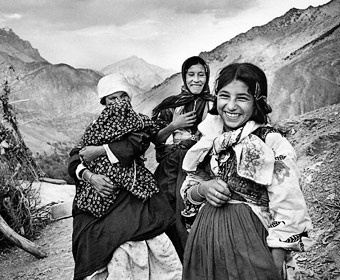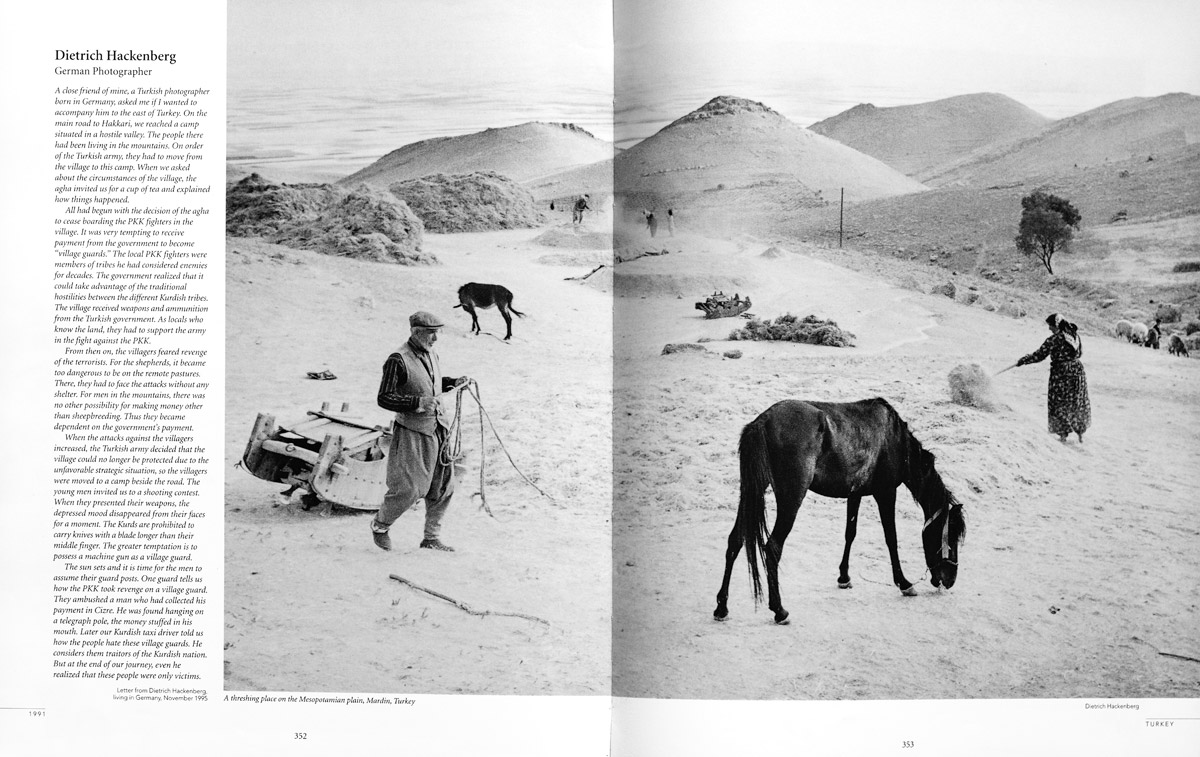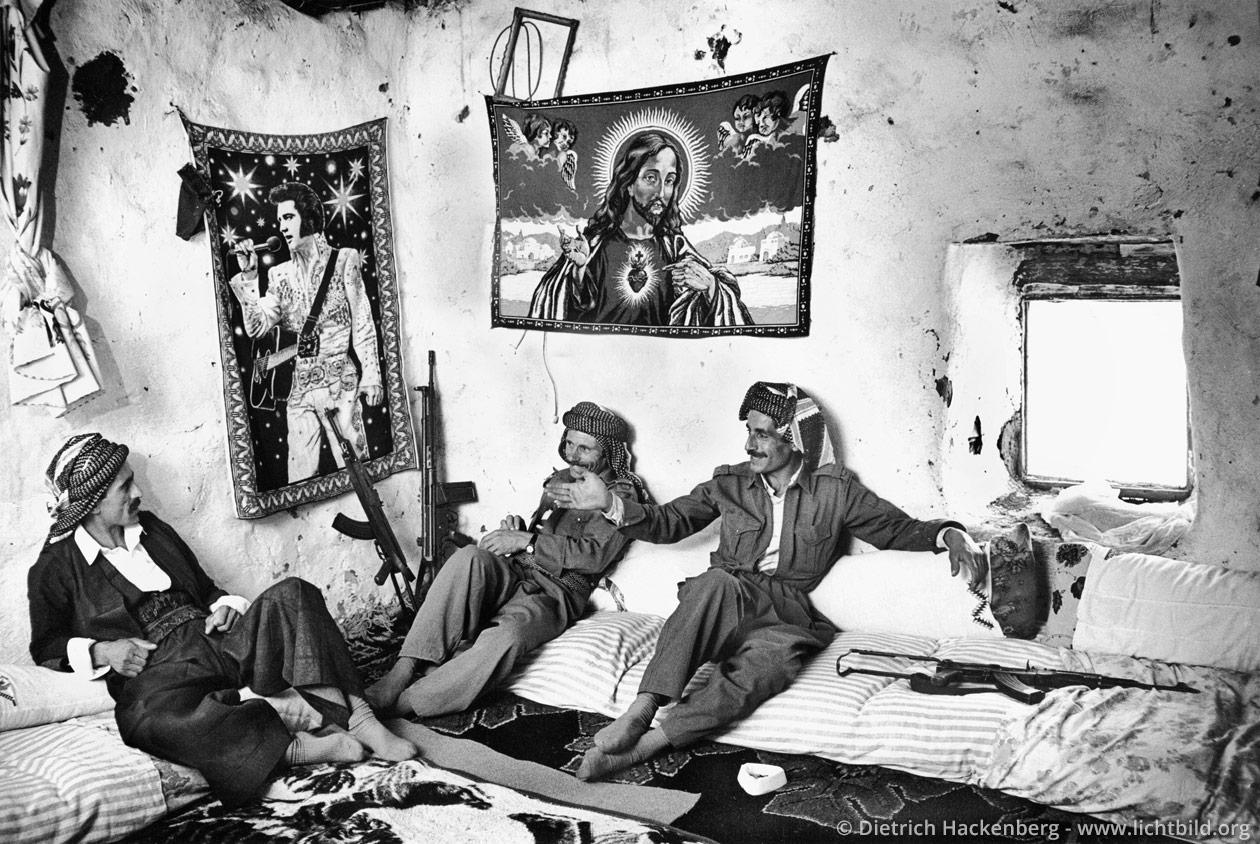
1991 bin ich zusammen mit einem deutsch-türkischen Kollegen durch die Kurdenprovinzen der Türkei gereist. Der Fokus unserer Reportage lag auf den „Dorfschützern”, Kurden die vom türkischen Staat bewaffnet und bezahlt wurden, um das Militär im Kampf gegen die PKK zu unterstützen.
Kurdistan in the Shadow of History
Im Buch „Kurdistan in the Shadow of History” von Susan Meiselas ist ein englischsprachiger kurzer Erlebnisbericht und ein Bild meiner Reise veröffenlicht worden:
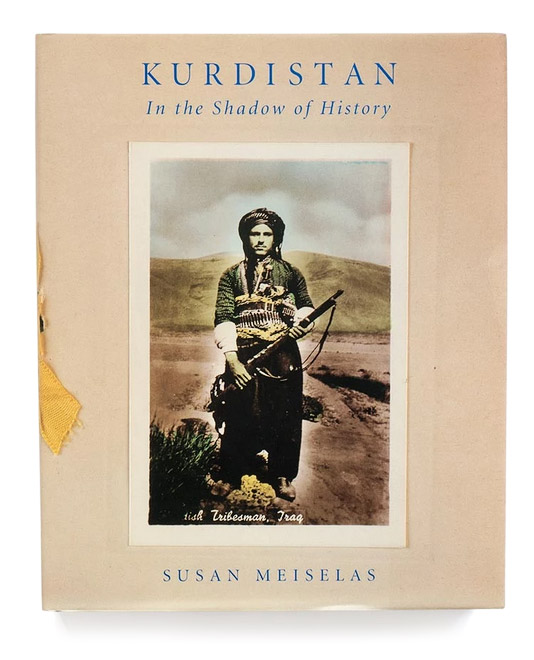
«A close friend of mine, a Turkish photographer born in Germany, asked me if I wanted to accompany him to the east of Turkey. On the main road to Hakkari, we reached a camp situated in a hostile valley. The people there had been living in the mountains. On order of the Turkish army, they had to move from the village to this camp. When we asked about the circumstances of the village, the agha invited us for a cup of tea and explained how things happened. All had begun with the decision of the agha to cease boarding the PKK fighters in the village. It was very tempting to receive payment from the government to become „village guards“. The local PKK fighters were members of tribes he had considered enemies for decades. The government realized that it could take advantage of the traditional hostilities between the different Kurdish tribes. The village received weapons and ammunition from the Turkish government. As locals who know the land, they had to support the army in the fight against the PKK.
From then on, the villagers feared revenge of the terrorists. For the shepherds, it became too dangerous to be on the remote pastures. There, they had to face the attacks without any shelter. For men in the mountains, there was no other possibility for making money other than sheepbreeding. Thus they became dependent on the governments’s payment. When the attacks against the villagers increased, the Turkish army decided that the village could no longer be protected due to the unfavorable strategic situation, so the villagers were moved to a camp beside the road. The young men invited us to a shooting contest. When they presented their weapons, the depressed mood disappeared from their faces for a moment. The Kurds are prohibited to carry knives with a blade longer than their middle finger. The greater temptation is to possess a machine gun as a village guard.
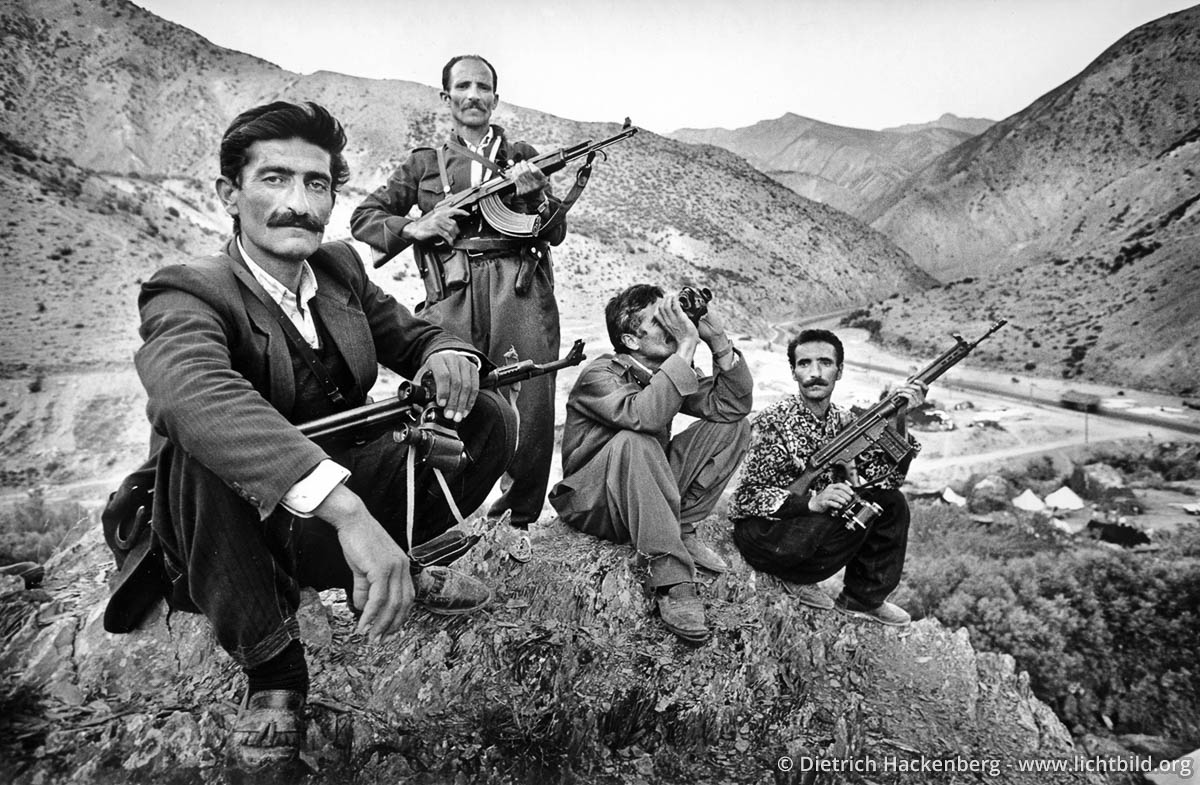
The sun sets and it is time for the men to assume their guard posts. One guard tells us how the PKK took revenge on a village guard. They ambushed a man who had collected his payment in Cizre. He was found hanging on a telegraph pole, the money stuffed in his mouth. Later our Kurdish taxi driver told us, how the people hate these village guards. He considers them traitors of the Kurdish nation. But at the end of our journey, even he realized that these people were only victims. »
Letter from Dietrich Hackenberg, living in Germany, November 1995
Von Diyarbakir nach Hakkari
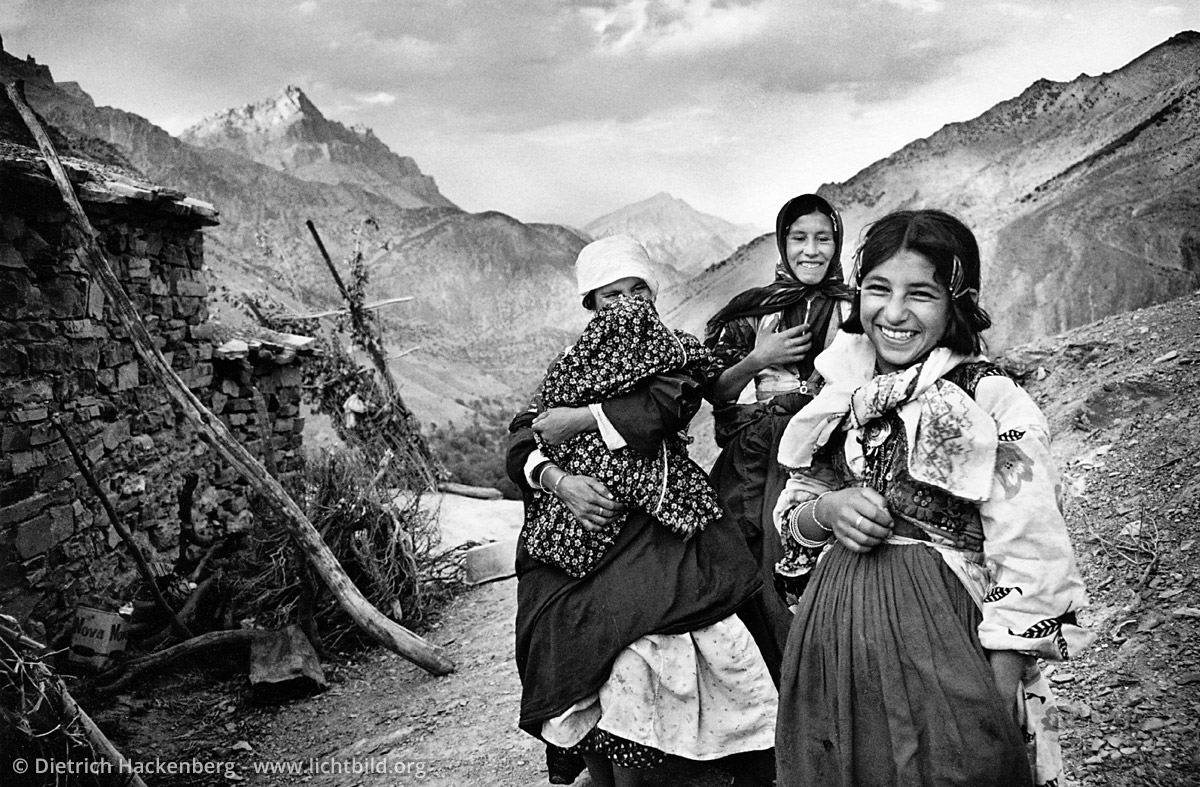
21 Bilder
Kurdistan im Web
- Kurdistan, In the Shadow of History
- Englischsprachige Webseite mit Informationen zum Buch, der Ausstellung und dem Online Archiv „aka Kurdistan” — über die Geschichte der Kurden.
Auf Lichtbild
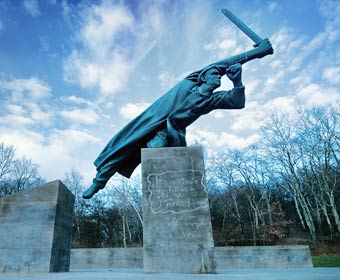
Spaniens Himmel über Berlin
Erinnerungsorte des Spanischen Bürgerkrieges
Historischer Reiseführer zu Orten der deutschen Hauptstadt, die vom Bürgerkrieg zeugen. lichtbild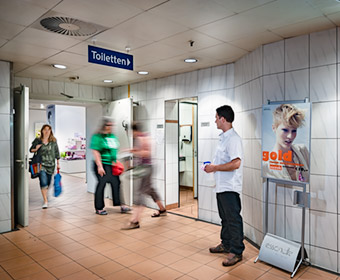
Besetzt – Geschichten im Stillen Örtchen
Arbeitsplatz Toilette
Toilettenfrau Doris und Toilettenmann Thorsten erzählen von ihrem Alltag. lichtbildIm Blog
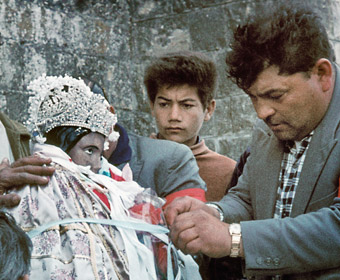
«Zigeuner-Wallfahrt» zur heiligen Sara
Saintes-Maries-de-la-Mer
1964 fotografiert von Winfried Hackenberg
blog.lichtbild
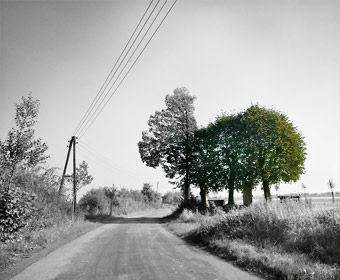
Route Migration
Erinnerungsorte der Ein- und Auswanderung in NRW
Migrationsgeschichte zwischen Rhein und Weser seit dem 16. Jahrhundert
blog.lichtbild

